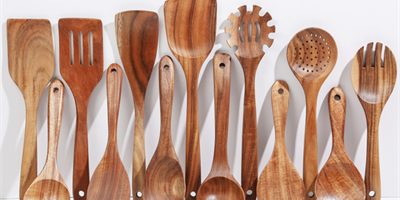Modern cooking often demands precision and finesse, and wooden utensils provide a gentle touch that harmonizes seamlessly with the needs of contemporary kitchens. In this blog, we’ll explore how wooden utensils offer a grace and effectiveness that complements the art of modern cooking.
Preserving Cookware
Wooden utensils are kind to your cookware, especially non-stick surfaces and delicate pots and pans. Their soft edges and smooth surfaces minimize the risk of scratching or damaging these advanced cooking surfaces, ensuring their longevity.
Heat Resistance
Despite their traditional appearance, wooden utensils are perfectly compatible with modern cooking methods. They are naturally heat-resistant, allowing them to be used in hot pots and pans without concern of melting or warping.
Versatility and Comfort
Modern culinary practices often require versatility and comfort in the kitchen. Wooden utensils deliver on both fronts. Their ergonomic designs ensure a comfortable grip, making them ideal for prolonged cooking sessions. They are also versatile, handling tasks from stirring and flipping to serving and tossing with ease.
Food Safety
Wooden utensils offer natural antibacterial properties. While proper cleaning is essential, they inherently reduce the risk of bacterial growth compared to porous materials like plastic. This contributes to food safety in your kitchen.
Connection to Tradition
Cooking with wooden utensils connects you to age-old culinary traditions that have been passed down through generations. It’s a reminder of the time-tested methods and techniques that continue to play a crucial role in modern cuisine.
Caring for Wooden Utensils
Proper care ensures the longevity and performance of wooden utensils. Handwashing with mild soap and lukewarm water, seasoning to prevent drying, and thorough drying after use are key steps in their maintenance.
Wooden utensils provide a graceful and effective touch in the modern kitchen, preserving cookware, enhancing food safety, and connecting you to the culinary traditions of the past.

















